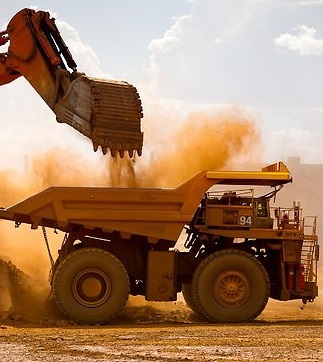Market reacts to Rio's dour dividend call
 Rio Tinto says its dividends will fall in future years, sending its own stock tumbling after the announcement.
Rio Tinto says its dividends will fall in future years, sending its own stock tumbling after the announcement.
The company has ditched its “progressive” dividend policy (which sought to guarantee that dividends never fall) and is now shooting for returns of between 40 and 60 per cent of underlying earnings over the longer term.
In the first hour of trading in London after Rio’s announcement, $6 billion of value was wiped off the stock.
The Australian mining giant says it is trying to protect its balance sheet from ongoing market turmoil, while also ensuring it is not constrained by its own dividend policy. The second part has been taken as a hint at possible acquisitions.
Rio has pledged a 2016 dividend of at least $US1.10 a share. If it holds at that level, the 2016 dividend will be the lowest since 2010.
The new dividend policy came after Rio posted an underlying full-year profit of $US4.5 billion ($6.35 billion) - its lowest underlying profit since 2009.
The net result was a loss of $US866 million after $US3.3 billion of non-cash exchange rate and derivative losses, plus $US1.8 billion worth of asset impairments.
Declining profits were expected given that prices for Rio’s major assets - iron ore, copper, aluminium and alumina – dropped almost continually during 2015.
“With the continuing uncertain market outlook, the board believes that maintaining the current progressive dividend policy would constrain the business and act against shareholders' long-term interests,” Rio chairman Jan du Plessis explained.
“We are therefore replacing the progressive dividend policy with a more flexible approach that will allow the distribution of returns to reflect better the company's position and outlook.
“For 2016, we intend that the full year dividend will not be less than 110 US cents per share.”
Morgan Stanley analyst Adrian Prendergast has told Fairfax reporters that the dividend change is a reasonable move in the current climate.
“This range is likely to be driven by Rio's desire to keep its dividend above a minimum of $US1.10; equivalent to a minimum dividend yield of at least 3.8 per cent fully franked,” he said.
“We consider this to be a reasonable move, freeing up significant capital.”
While the move has been sold primarily as a reaction to weak market conditions, Rio chief financial officer Chris Lynch did hint that the company could look at new acquisitions amid low asset prices.
Rio has put out feelers to look for cheap copper assets, and while chief executive Sam Walsh says there is no specific purchase on the cards, balance sheet pressure throughout 2016 should see more assets put on the market.







 Print
Print